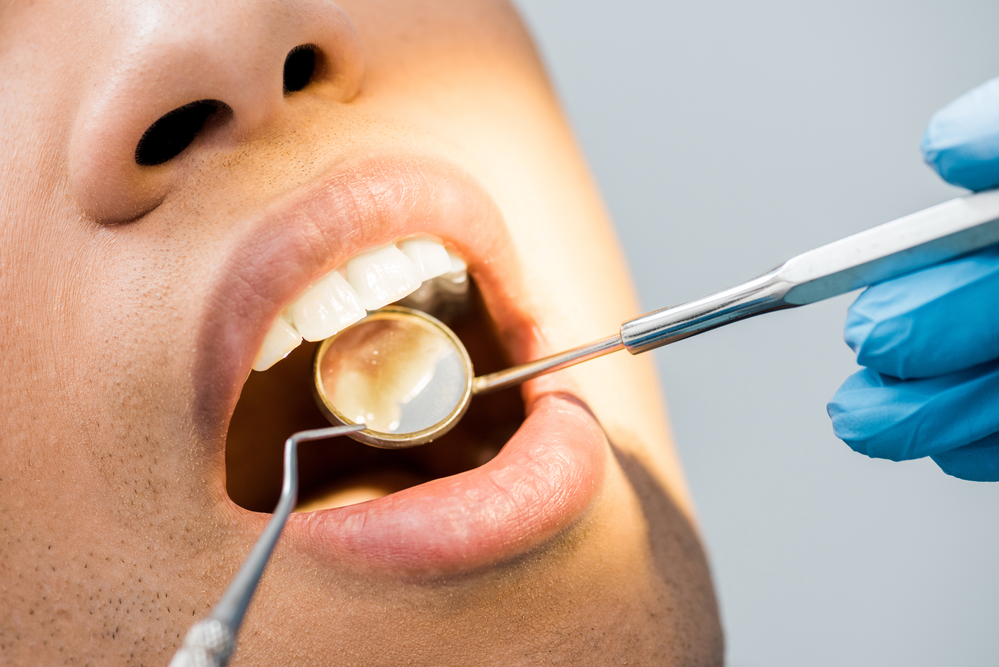7 Things Your Dentist Wants You To Know About Dentures
Dentures are a well-known tooth replacement solution. But what do you really know about dentures? Here are a few things we want you to know about your dentures. 1 -...

When acid produced by the stomach moves up into the esophagus, it can cause chest pain commonly known as heartburn. That same acid can wear away the enamel on your teeth, silently damaging them in the process. Your first indication that acid reflux is damaging your enamel may be that hot or cold foods, drinks, and sweets begin to bother your teeth and cause sensitivity.
If you suffer from acid reflux, follow these ten tips to prevent acid reflux from damaging your teeth.
Brushing your teeth twice a day for a full two minutes is the first step towards taking excellent care of your oral hygiene. Additionally, you should be flossing once a day or as directed by your dentist. A fluoride mouthwash to remineralize soft spots is an excellent addition to your oral hygiene routine if you suffer from acid reflux.
Your physician can advise you on ways to control your acid reflux. It may be recommended to lose weight, avoid certain foods, sleep in a propped-up position, or refrain from the use of alcohol and tobacco.
You can lower your risk of acid reflux by eating smaller meals and changing your diet. Foods and beverages that trigger acid reflux include tomatoes, citric fruits, chocolate, coffee, garlic, onions, and meals that are spicy, acidic, or high in fat content. It is also recommended that you stay upright after eating or drinking.
Drinking through a straw allows for the liquid to bypass your teeth instead of coating them in whatever beverage you are ingesting.
Chewing sugarless gum can encourage saliva production. Saliva helps to neutralize and wash away acids in your mouth. When selecting a sugar-free gum, look for one with the ADA Seal of Acceptance.
It’s never recommended to brush your teeth immediately after a meal, and this rule-of-thumb is exceptionally vital for patients who suffer from acid reflux. Waiting an hour after eating before cleaning with a soft-bristled toothbrush will allow for your enamel to harden before you begin brushing against softened enamel.
Ask your dentist what type of toothpaste they recommend for you to use. You may be surprised to learn that the whitening toothpaste that you have been using for years is increasing the sensitivity you’re experiencing. Brushing with a fluoride toothpaste will help to strengthen your enamel and prevent it from being eaten away. Your dentist can also prescribe a stronger toothpaste to bolster your defenses, if necessary.
The first thing to do after experiencing an acid reflux episode is to rinse your mouth thoroughly with water to remove any acid that may remain on the surfaces of your teeth. The worst damage from acid is done when contents stay on your teeth for extended periods. Rinsing with a baking soda and water mix will help to neutralize the acid in your mouth and allow for better fluoride uptake.
Depending on the extent of the damage, your enamel may or may not be able to be restored. You may be the right candidate for dental bonding, which can offer additional protection for a damaged tooth by covering any worn, chipped, or discolored areas of concern. If your dentist discovers that you have lost too much enamel, they may recommend the damaged tooth be covered with a crown to prevent further damage and save the tooth.
Regular exams from a dentist are vital to maintaining your tooth enamel. Your dentist is trained to detect early symptoms of potentially dangerous conditions before they progress. More than 90% of systemic diseases have oral manifestations that can be detected by a dentist during an exam.
Don’t suffer from chronic acid reflux in silence. Dr. Aubrey Baudean DDS is here to help you live your life with a healthy smile. Call today to learn more about preventing acid reflux from damaging your teeth.